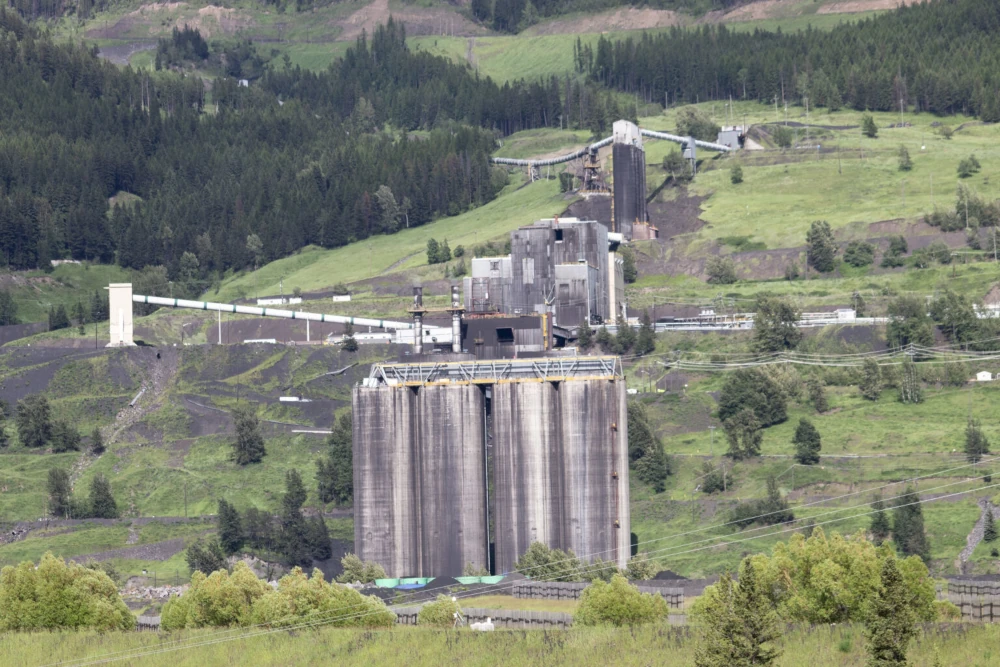
By Mia Maldonado, Idaho Capital Sun
August 14, 2024
Officials from the U.S. and Canada are taking steps to address concerns from Native American tribes and environmental groups in Idaho who have pushed for years to strengthen regulations on water contamination in the Kootenai River.
The International Joint Commission, which is made up of U.S. and Canadian officials, is accepting public comment until Aug. 27. The commission is seeking data on mining contamination and ecosystem health studies in the Kootenai River.
The commission oversees the 1909 Boundary Waters Treaty, which states that neither country shall pollute water that flows across their boundary to the extent that it would harm the health and property of the other country.
For over a century, British Columbia’s Elk Valley has been home to five mountaintop removal coal mines. The coal mining industry plays a large role in the region’s history and economy, but according to the Idaho Conservation League, excessive minerals produced during the mining process are making their way into the Elk River, which feeds into the Kootenai River that flows through Montana and Idaho.
In particular, excessive selenium levels in the water basin threaten fish populations that the Kootenai Tribe has spent years trying to restore, the Idaho Capital Sun previously reported.
The public comment period marks an initial step for U.S., Canadian, and tribal officials to tackle this issue.
Idaho Conservation League North Idaho director, Jennifer Ekstrom, told the Sun that she is pleased to see the International Joint Commission address the coal mine pollution. The league has pushed the commission to take this issue on since 2019, she said.
Ekstrom said selenium pollution stemming from British Columbia is reaching U.S. waterways beyond the Kootenai River in Idaho. A report by the U.S. Geological Survey indicates selenium may cause harm to aquatic life as it flows into the Columbia River and downriver into Washington state.
“We have great hopes for the International Joint Commission’s work to ensure the coal mine pollution is addressed appropriately and that U.S. waters are protected,” Ekstrom told the Sun.
In March, governments from the U.S. and Canada requested the International Joint Commission take action by creating a study board to gather data about pollution in the watershed and its impacts to people and species. The study board must submit an interim report within one year, and a final report and recommendations by 2026.
Additionally, the commission has organized a governance body consisting of representatives from British Columbia, Idaho, Montana and representatives from the Kootenai Tribe of Idaho and the Confederated Salish and Kootenai Tribes. The governance body will review data from the study board and develop an action plan to reduce the impacts of water pollution.
Another concern Ekstrom has is that Teck Resources, a coal mining company in Elk Valley, finalized its sale in July to Swiss-based company, Glencore, CBC Canada reported. Ekstrom said the conservation league is concerned about Glencore taking over coal operations because of its track record of polluting the areas where they mine, such as a Superfund site at their aluminum smelter in Montana, which consists of 200 acres of contaminated soil.
“We need assurances that the water pollution will be cleaned up and mitigated in perpetuity,” she said.
Submitting comments to International Joint Commission
Public comment to the International Joint Commission can be sent by email, online or by mail.
To send comments via email, send a PDF or Word document to elk@ijc.org.
To send comments online, you must log in or register to the International Joint Commission website.
To send comments via mail, send your mail to the U.S. address:
Attn: Comments – Elk-Kootenai/y Study Board Structure
U.S. Section
1717 H St. NW, Suite 835
Washington, D.C. 20006
United States
